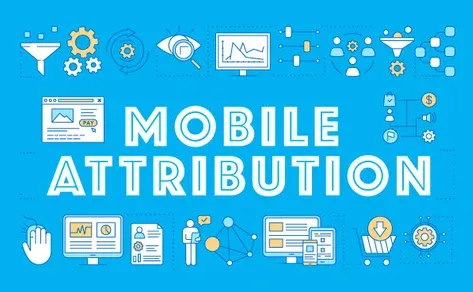What is Mobile App Attribution and How Does it Work?
After launching a marketing campaign, marketers and business owners wondered whether it was worth the investment. Have you ever wished you had a crystal ball to tell you which channels and campaigns were actually driving user engagement and installs? Well, it turns out you don’t need a crystal ball – you need mobile app attribution! It’s the secret sauce that helps you track user acquisition and optimize your marketing strategy based on data-driven insights.
In this blog post, we’ll explain mobile app attribution, how it works, and why it can transform your marketing efforts. So grab a seat, put on your thinking caps, and let’s explore the world of mobile app attribution together!
Mobile app attribution is a critical component of any successful mobile app marketing strategy. It is the process of identifying which marketing channels or campaigns are responsible for driving user engagement and app installs. This information is essential for marketers to measure the effectiveness of their advertising efforts and optimize their marketing strategy accordingly.
What is Mobile App Attribution?
Mobile app attribution is a method of identifying and measuring the effectiveness of marketing campaigns that drive mobile app downloads and user engagement. It involves tracking and analyzing user behaviour on different channels, such as social media, emails, and paid search, to determine which marketing campaigns are driving the most installs and revenue. Attribution tracking helps mobile app marketers understand how users interact with their app and which marketing campaigns drive the maximum value.
In simpler terms, mobile app attribution refers to identifying the sources that bring users to your app. This is done by tracking the user’s journey through the different steps of the sales funnel, including acquisition and conversion.
How Does Mobile App Attribution Work?
Mobile app attribution works by tracking and identifying the sources of app installs and user engagement. When a user downloads or opens an app, a unique tracking link or code is assigned to that user. This tracking link allows marketers to identify which marketing campaigns or channels are driving user acquisition and user engagement.
Mobile app attribution platforms typically use a combination of data sources, including device-level data, referral URLs, and deep-linking technology, to track user behaviour and attribute app installs to specific marketing campaigns. This data is then compiled into an attribution report that gives marketers a clear picture of which campaigns are performing best and where they should invest their marketing budget.
One of the most popular models for mobile app attribution is the last-touch attribution model, which assigns credit for app installs to the last marketing channel that the user interacted with before downloading or opening the app. However, there are other attribution models, such as multi-touch attribution, that take into account all of the marketing touchpoints that led to an app install.
Steps Involved in Mobile App Attribution
That being said, now let us discuss the steps involved in mobile app attribution:
User Acquisition:
The user downloads and installs the app from a specific marketing campaign or channel, such as social media, search engine, or email marketing.
Attribution Tracking:
Attribution tracking technology identifies the marketing channel or campaign that led to the user acquisition using a unique tracking link or identifier. These tracking links or identifiers include the source, medium, campaign, content, and keyword.
Data Collection:
It collects data on user behaviour, such as app usage and engagement, to provide deeper insights.
Data Analysis:
The collected data is analyzed to determine the effectiveness of each marketing channel and campaign in driving user engagement and app installs. Attribution data is commonly analyzed using dashboards and reports that provide metrics such as installs, clicks, impressions, and conversion rates.
Optimization:
The insights gained from the data analysis are used to optimize marketing strategies, improve user acquisition, and increase ROI. This involves identifying the most effective marketing channels and campaigns and allocating resources to them.
Why is Mobile App Attribution Important?
Mobile app attribution is essential for mobile app marketers for several reasons:
Measure Campaign Effectiveness:
Attribution tracking allows marketers to measure the effectiveness of their marketing campaigns and channels, providing insights into which strategies are driving the most value. This helps marketers make informed decisions about which channels to allocate their resources.
Optimize Marketing Strategy:
By understanding which marketing channels and campaigns are most effective, marketers can optimize their marketing strategy to drive more user engagement and app installs. Attribution data can help identify which messaging, creative, and targeting strategies work best.
Increase ROI:
It helps marketers identify the most effective marketing channels and campaigns, allowing them to focus their resources on the strategies that drive the most value and increase their ROI. This helps maximize the value of their marketing spend.
Conclusion
In summary, mobile app attribution is a crucial component of mobile app marketing. For effective and better business growth, you should use an MMP like Tracker. From providing a high-end dashboard of your campaign performance and reporting features to the app attribution feature, Trainer MMP stands apart.
Our platform enables marketers to track and analyze user data to determine which marketing campaigns and channels are most effective at driving user engagement and app installs. Hence, by optimizing the marketing strategies based on attribution data, marketers can increase their ROI and drive more user engagement.


















